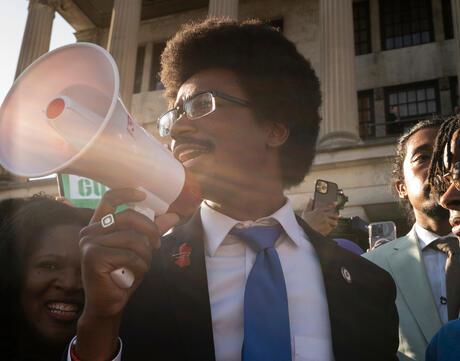
Decorum and Sanctioning Representatives Jones, Pearson, and Zephyr
At a Glance
Language
English — USSubject
- Advisory
- English & Language Arts
- Social Studies
Grade
6–12- Human & Civil Rights
- Democracy & Civic Engagement
Overview
About This Mini-Lesson
In April 2023, three state lawmakers in Tennessee and Montana were excluded from legislative sessions or expelled outright on the grounds that they violated rules of decorum. This mini-lesson includes an optional opening activity that helps students consider how to discuss politics in non-polarizing ways, helps students learn about the events leading up to the sanctioning of the Tennessee and Montana representatives, and raises questions around the use of rules around decorum to censure the legislators. Each activity can be used on its own or taught in any combination best suited to your students.
Activities
Activities
Materials and Downloads
Quick Downloads
Download the Files
Resources from Other Organizations
Unlimited Access to Learning. More Added Every Month.
Facing History & Ourselves is designed for educators who want to help students explore identity, think critically, grow emotionally, act ethically, and participate in civic life. It’s hard work, so we’ve developed some go-to professional learning opportunities to help you along the way.
Exploring ELA Text Selection with Julia Torres
On-Demand

Working for Justice, Equity and Civic Agency in Our Schools: A Conversation with Clint Smith
On-Demand

Centering Student Voices to Build Community and Agency
On-Demand














